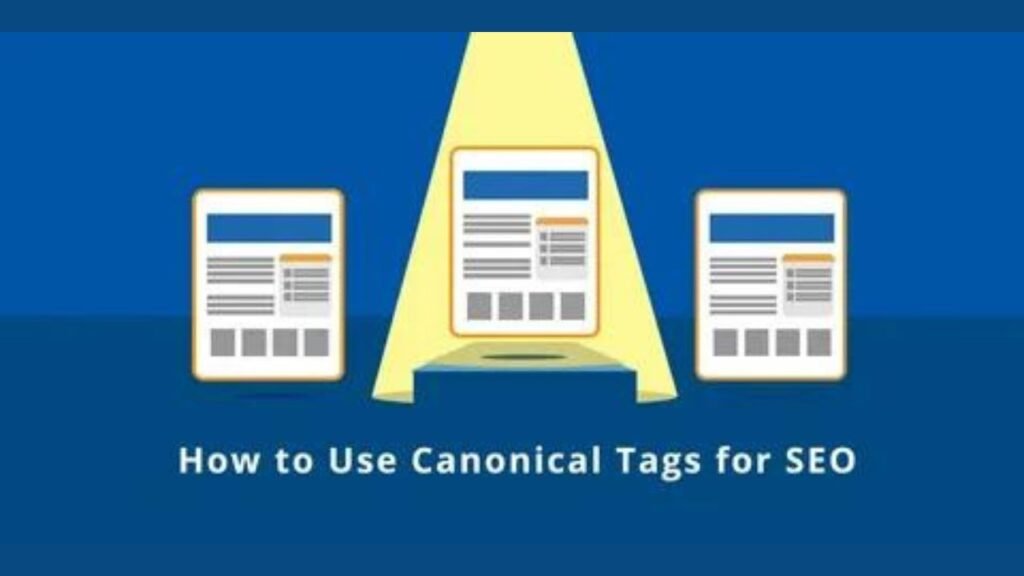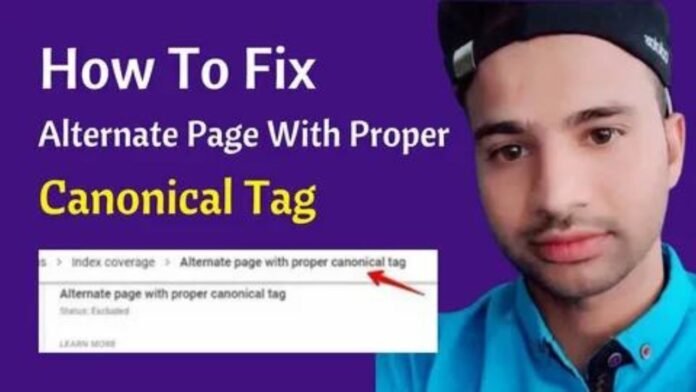To fix an alternate page with a proper canonical tag in local SEO, identify duplicate content and specify the canonical URL for the preferred page using the canonical tag in the HTML head. This helps search engines understand which page to prioritize.
What are Alternate Pages
Alternate pages refer to different web pages that offer content similar to or identical to that of a primary page. These variations may exist due to different URL structures, language versions, or targeted geographic regions.
For instance, an e-commerce website may have product pages with the same content but different URLs for tracking purposes.
Managing alternate pages is important to avoid duplicate content issues and confusion for search engines.
Canonical tags can be used to specify the preferred version of a page, helping search engines understand which page to index and rank. Implementing proper canonicalization helps maintain SEO performance and ensures a better user experience.
Importance of Accurate Page Indexing
Accurate page indexing is crucial for search engine optimization (SEO) as it helps search engines understand your site’s content. Proper indexing ensures pages are discoverable, rank higher in search results, and target relevant audiences, leading to improved visibility, traffic, and user experience.
Issues with Alternate Pages
Alternate pages can cause several issues in SEO, particularly when not managed properly. One common problem is duplicate content, where multiple URLs with similar content confuse search engines and dilute SEO value. This can negatively impact search rankings and user experience.
Incorrect canonical tags can misdirect search engines, leading them to prioritize the wrong page. This hinders the visibility of your preferred content and can affect your search engine ranking.
To resolve these issues, ensure that canonical tags correctly point to the main page, reducing search engine confusion. Regularly audit your website for duplicate content and correct canonical tag issues to maintain strong SEO performance and user engagement.
I am Defining Alternate Pages
Alternate pages refer to different versions of the same webpage, often created for specific audiences or purposes. These can include localized content, mobile-optimized pages, or language variations. Properly managing alternate pages with canonical tags helps avoid duplicate content issues and improves SEO.
Canonical Tags: An Overview
Canonical tags play a crucial role in SEO by specifying the preferred version of a webpage when there are multiple similar pages. By placing the canonical tag in the HTML head, web admins can signal to search engines which page to prioritize for indexing and ranking.
This helps avoid duplicate content issues and consolidates page authority, improving SEO performance. Proper use of canonical tags enhances user experience by ensuring visitors reach the correct page.
Canonical tags guide search engines in handling duplicate or similar content, providing a streamlined and efficient browsing experience for users while supporting optimal SEO strategies.
Confusion in Search Engine Indexing
Confusion in search engine indexing arises when duplicate content, incorrect canonical tags, or inconsistent metadata exist on a website. This leads to multiple versions of a page competing for rankings, impacting visibility. Properly using canonical tags and monitoring index coverage can help resolve this confusion.
Why Proper Canonical Tags are Important in Local SEO
Proper canonical tags play a crucial role in local SEO by preventing duplicate content issues and enhancing search engine rankings. By specifying the preferred version of a webpage, businesses can guide search engines to prioritize the most relevant page for local queries.
This clarity helps avoid content dilution and ensures that the right page is displayed to potential customers in search results. Additionally, it improves the overall user experience by directing users to the most authoritative page for a given topic or location.
Implementing canonical tags correctly boosts local search visibility, leading to increased online engagement and foot traffic for businesses.
I am Avoiding Duplicate Content Penalties
Avoiding duplicate content penalties involves:
- Using canonical tags to signal preferred URLs.
- Creating unique, high-quality content.
- Avoid copying or syndicating content.
You should also regularly audit your site for duplicates, use 301 redirects where needed, and monitor Google Search Console for issues.
How to Identify Pages Needing Canonical Tags
Identifying pages that need canonical tags is crucial for managing duplicate content and optimizing your SEO strategy. Start by reviewing your website for duplicate or similar content across different pages.
Look for similar URLs with minor variations, such as session IDs, tracking parameters, or product filters. Tools like Google Search Console can help identify pages that receive similar search engine visibility. Monitor pages with similar titles or content across different locations, such as regional pages.
Check for paginated content that may benefit from a canonical tag. Once identified, use the canonical tag in the HTML head section to specify the preferred URL for each set of duplicate pages.
Tools for Identifying Alternate Pages
Tools for identifying alternate pages include Google Search Console, which highlights duplicate content and canonicalization issues, and Screaming Frog, a website crawler that pinpoints alternate URLs. SEMrush and Ah refs also offer insights into duplicate pages and suggestions for setting canonical tags.
Implementing Canonical Tags in Local SEO

Implementing canonical tags in local SEO helps avoid duplicate content issues and provides clarity to search engines on which version of a page is preferred. When multiple pages have similar or identical content, adding a canonical tag in the HTML head of each page points to the preferred URL.
This tag helps consolidate page rankings and improve the site’s SEO performance by reducing confusion for search engines.
By designating a canonical URL, you guide search engines to prioritize the chosen page for indexing and ranking, enhancing your local SEO efforts. Proper implementation of canonical tags improves search engine visibility and user experience.
Best Practices for Implementation
How to Fix Alternate Page with Proper Canonical Tag in Local SEO, Implement best practices by first conducting a thorough analysis and planning for clear goals and objectives.
Choose the right tools and technologies, ensure proper training and documentation, test thoroughly before deployment, and continuously monitor performance to adjust strategies for optimal outcomes.
Monitoring and Maintenance
Monitoring and maintenance are crucial for the efficient operation of any system or infrastructure. Regular monitoring helps identify potential issues before they escalate, ensuring the smooth functioning of equipment, software, and processes. By using diagnostic tools, organizations can track performance and detect anomalies.
Maintenance involves routine checks, cleaning, and repairs to keep systems running optimally. This can include updating software, replacing worn parts, and adjusting settings to improve efficiency. Proper monitoring and maintenance extend the lifespan of assets, reduce downtime, and improve safety.
Investing in consistent monitoring and maintenance saves time and money in the long run by preventing costly breakdowns and ensuring reliable performance.
Regular Checks for Canonical Tag Effectiveness
Regular checks for canonical tag effectiveness involve monitoring your website for duplicate content and ensuring the preferred URL is correctly specified. Tools like Google Search Console help track any issues. Conduct audits regularly to maintain optimal SEO performance and prevent search engine penalties.
To Avoid
How to Fix Alternate Page with Proper Canonical Tag in Local SEO, To avoid common mistakes in SEO, focus on the following strategies:
- Duplicate Content: Use canonical tags to specify the preferred version of duplicate pages.
- Keyword Stuffing: Avoid overloading pages with keywords; use them naturally.
- Ignoring Local SEO: Optimize for local searches with location-specific keywords and business listings.
- Neglecting Mobile Optimization: Ensure your website is mobile-friendly for better user experience and rankings.
- Poor Link Building: Build high-quality, relevant backlinks rather than engaging in spam my link-building practices.
- Slow Page Loading: Optimize website speed by compressing images and minimizing scripts.
By avoiding these pitfalls, you can improve your website’s SEO performance.
Misuse of Canonical Tags
Misuse of canonical tags can harm SEO by directing search engines to prioritize incorrect pages, causing loss of traffic and ranking issues. Avoid using canonical tags to manipulate ranking or consolidate unrelated content. Properly implement canonical tags to guide search engines to the preferred version of a page.
Benefits of Proper Canonical Tags
Proper use of canonical tags offers several benefits for SEO and website management. First, it helps avoid duplicate content issues by specifying the preferred URL for search engines, improving search engine ranking and visibility. Canonical tags guide search engines to the main version of a page, boosting its authority and consolidating page rank.
Additionally, canonical tags streamline analytics data by attributing metrics to a single URL, making it easier to track performance accurately. They also enhance the user experience by directing visitors to the most relevant and up-to-date content. Overall, proper canonical tag usage is essential for optimal website SEO and user engagement.
It has improved Search Engine Ranking
Improving search engine ranking requires optimizing website content with relevant keywords, quality backlinks, and mobile-friendly design.
Regularly updating content and focusing on user experience enhances visibility and credibility. Engaging social media presence and quick loading times also contribute to better search engine rankings.
Case Studies
Case studies are an effective way to showcase real-world applications and success stories. They provide tangible examples of how a product, service, or strategy has been implemented to solve a specific problem or achieve a particular goal.
By examining detailed accounts of challenges faced and solutions applied, businesses and individuals can gain insights into best practices and innovative approaches. Case studies often include data and metrics to demonstrate impact, offering credibility and validation.
For companies, they can serve as powerful marketing tools, highlighting their expertise and results. For readers, they offer valuable lessons and inspiration for tackling similar issues in their work.
Examples of Successful Canonical Tag Implementation
How to Fix Alternate Page with Proper Canonical Tag in Local SEO, Successful canonical tag implementation can be seen in e-commerce sites like Amazon and Walmart, which use canonical tags to consolidate duplicate product pages. Similarly, news websites like The New York Times effectively use canonical tags to manage identical articles across multiple URLs.
Expert Tips and Insights
Expert tips and insights can provide valuable guidance for improving performance and achieving success in various fields. Start by staying updated with industry trends and news. Networking with peers can offer fresh perspectives and opportunities. To stay competitive, prioritize continuous learning and skill development.
Time management and setting clear goals are essential for productivity and focus. Seek feedback and be open to constructive criticism to enhance your work
Leverage technology and tools that can streamline processes and boost efficiency. Lastly, maintain a healthy work-life balance to avoid burnout and sustain long-term productivity. By following these expert tips, you can elevate your performance and achieve your goals.
Strategies for Maximizing Local SEO Impact

How to Fix Alternate Page with Proper Canonical Tag in Local SEO, Maximize local SEO impact by optimizing Google My Business profiles, incorporating local keywords, and ensuring consistent NAP (name, address, phone) details across platforms. Encourage local reviews, create location-specific content, and utilize local schema markup for better visibility and engagement.
Future Trends in Local SEO
Future trends in local SEO emphasize personalization, mobile optimization, and voice search. Businesses need to focus on tailoring content to specific user needs and ensuring websites are mobile-friendly.
Voice search will become more prominent, requiring conversational content and keyword targeting. Local SEO will integrate advanced mapping technologies, highlighting proximity-based services.
AI and machine learning will offer insights into user intent, helping businesses optimize for local queries. Social media and customer reviews will play a significant role in influencing local search rankings. Lastly, visual content like images and videos will gain importance in the search, requiring businesses to maintain a strong visual presence.
Anticipated Developments in Canonical Tag Usage
How to Fix Alternate Page with Proper Canonical Tag in Local SEO, Anticipated developments in canonical tag usage include improved dynamic tag placement for flexible page variations and automated tagging for efficient optimization.
Machine learning may guide canonical selection based on user behavior, and integration with content management systems will simplify implementation and monitoring.
Conclusion
Proper canonical tags play a vital role in ensuring the accurate indexing of web pages and maximizing search visibility. By addressing alternate pages with the appropriate canonical directives, businesses can enhance their online presence and attract more local customers.
FAQ
How do I Resolve an Alternate Page with a Proper Canonical Tag?
Navigate to Coverage > Alternate page with proper canonical tag and review the listed pages. Determine if any of them should not be canonicalized. If you find such pages, update the canonical link to point to the page itself.
How do I Fix Canonical Issues in SEO?
HTTP/HTTPS and WWW/non-WWW canonical issues can be resolved by implementing a sitewide 301 redirect to the correct URL version. One of the easiest and safest methods is to set up the redirect through your website’s hosting provider.
How do Canonical Tags Affect SEO?
Canonical tags inform search engines of a preferred or standard resource among similar or duplicate content, helping to resolve SEO issues. Duplicate content negatively affects SEO and can be identified using a duplicate content checker or by crawling with tools like Ryte.
Why Alternate Pages with Proper Canonical Tags?
If the “Alternate page with proper canonical tag” message appears in the Page indexing (Index Coverage) report in Google Search Console, it suggests duplicate or thin content. It indicates you’ve selected the preferred version of your content to be shown in search results.
What is the Difference Between Canonical and Alternate Tags?
The rel alternate tag is like the canonical tag in that it helps manage content relationships. However, unlike the canonical tag, rel alternate is used to connect pages with entirely different versions of similar content, such as pages in different languages or formats.


